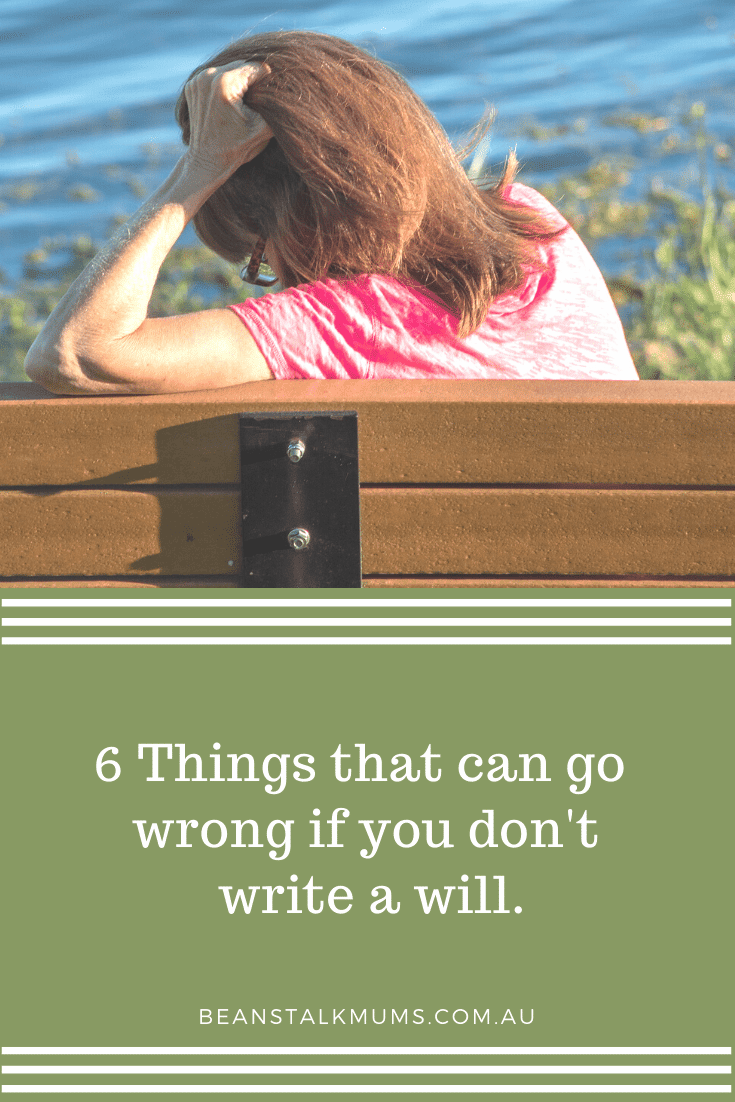
A will is a legal document that explains how you wish to distribute your assets after you die.
We all know we should have one, but it’s one of those things that’s easy to ignore. Wills are also a little bit scary – nobody wants to think about their demise, let alone what happens afterwards!
Completing a valid will is the best thing you can do to ensure your loved ones are sufficiently provided for and that your estate is handled according to your wishes.
As with all legal documents, a will should be crystal clear in outlining what you want. It should also be valid and up to date. You will need to appoint an executor such as a family member, friend or solicitor, and they will hold a copy of the will, so it’s important to make sure they have the most recent copy when you make any changes.
You also need to make sure that more than one other person is aware of who holds your will – especially in blended families or second marriages – as this ensures the most recent copy is produced when you pass away, rather than an outdated copy or no copy at all. If no copy can be found, the courts will determine how the estate will be distributed.
So, if you’ve decided to draft a will, it’s important to work with an experienced attorney to guide you through the process. As a legal document, a will has formalities that need to be observed in order to be valid and binding. Otherwise, it produces no legal effect. That’s why with a lawyer by your side, you can ensure your will is drafted with the formalities required by your state laws.
But despite the importance of a will, many people are still hesitant about the idea of writing one for themselves. As a result, several terrible things can happen if you fail to prepare a will.
There are six things that can go wrong if you don’t write a will.
6 Things that can go wrong if you do not write a will
You will not have the power to determine who gets your belongings
The whole point of a will is to decide who gets your assets and belongings. Many people don’t have a will because they ‘didn’t get around to it’ or think they don’t need one because they’re young or healthy.
If you pass away without a will, you’ll be considered ‘intestate’ and a court will distribute your assets. Having no valid will also means you have no power or voice because even if you have told someone what your wishes are, these may not be taken into consideration.
For example:
Sally was suffering from cancer and told her adult children that she wanted them to inherit her home and valuable belongings after she passed away. She was insistent upon this because she had remarried two years ago.
Unfortunately, Sally did not get the chance to make a valid, legal will in time and despite the children explaining the situation in court, all of Sally’s assets were distributed solely to her new husband as he was considered next of kin!
In Australia, most states will pass 100% of your assets to your spouse if you are considered intestate, despite the age of your children or whether your spouse is their parent. If you have no living spouse, all of your assets will pass to your children. Succession laws state that the order of next of kin is generally as follows:
- Spouse
- Child(ren)
- Parent(s)
- Sibling(s) or their children
- Grandparent(s)
- Aunty(ies) and Uncle(s) or their children.
This may vary state-to-state though, so it’s worth checking your own state’s laws (or don’t take the risk at all and just ensure you have a will!). If you don’t have any living relatives, the state will receive your assets.
Hence, if you want to spare your surviving family from the hassle associated with intestate succession, you should write a will with the help of an attorney. When you have a will, the administration of your estate will not be governed by your state’s intestate laws.
Instead, your last will and testament will be the basis for the distribution of the estate as intended. But before that, your will may have to undergo probate before your assets will be transferred to your designated beneficiaries. For example, if you die in WA or wherever you may be located, a Grant of Probate will be filed to validate your will and legally appoint a certain person to administer your estate and carry out your express wishes.
On the other hand, Letters for Administration will be filed if you have a will but you fail to name an executor. Although it can be a lengthy and time-consuming process, probating a will may be a much better option if you want your estate to go to the people you want to inherit them.
You won’t be sure your kids will get your assets, even if you’re separated from your spouse
As mentioned above, there is a hierarchy of succession that determines who receives your belongings if you don’t have a will (are intestate).
If you’ve left your spouse, they can still have 100% claim to your assets if you don’t have a will or your will isn’t valid, so it’s vitally important to ensure a valid will exists and is in safe hands if you want to ensure your children or step-children are provided for.
You’ll have no way of ensuring your ex can’t claim your estate
Did you know your ex can claim on your estate even if you have been separated (but not divorced) from them for a while (and maybe even moved on with a new partner)?
It’s true because even though you’re separated, your ex-partner is still your spouse in the eyes of the law until the marriage is dissolved through a divorce.
If you were in the position of being legally married to one partner (while separated) and living with a defacto partner, then things can become extremely complicated if you don’t have a valid and current will. Without a will, your current defacto spouse and your ex would each have 50% claim to your estate, even if you have children (and your children may not be entitled to a claim on your estate depending upon the Australian state you live in).
It is important to understand that any pre-existing will is not revoked because of a separation, however your will may become null and void, in some states, upon divorce. If you divorce your ex and marry your de-facto partner, your existing will becomes obsolete and if you don’t make a new will, your new husband or wife will receive 100% of your assets under an intestate arrangement.
Sometimes a couple may have an existing binding financial arrangement in place, which determines the division of assets upon separation of parties. A binding financial arrangement may prohibit a spouse’s claim on your legal estate, but this will depend on how the agreement is written and whether it was properly executed.
6 Things that can go wrong if you do not write a will (cont.)
Your estate may go to someone you don’t want
If you have no living spouse, children or parents, your estate will go to whoever is the next living relative on the list of succession, mentioned above. This may not suit you if you have an estranged sibling or similar whom you don’t want to share in your estate. A valid will ensures your hard-earned assets fall into the right hands.
It might make things more difficult for your family in their time of grief
It is hard enough for people to deal with the loss of a loved one, without the added stress of finding there is no will. Your estate may end up in the wrong hands, and your affairs may be administered by someone you don’t trust or even know. Your loved ones will also need to go through a long and annoying legal process if they want to apply for letters of administration, claim your assets or contest decisions.
If you don’t write a will it may cost your loved ones money
Without a will, a court will have to decide where your estate will end up. This means that all the legal costs associated with this process will come out of your estate, reducing the amount your beneficiaries will receive.
As you can see, it is very important to have a valid, legal will, as this will save your loved ones a huge amount of hassle and heartbreak. Even if you have a will, you should review it regularly with every life event to ensure it’s still relevant and in line with what you want.
Even though nobody really wants to face it, making a will is such an important and easy thing to do. You don’t even have to visit a solicitor because there are many online options available, so don’t put it off any longer – get started today.














